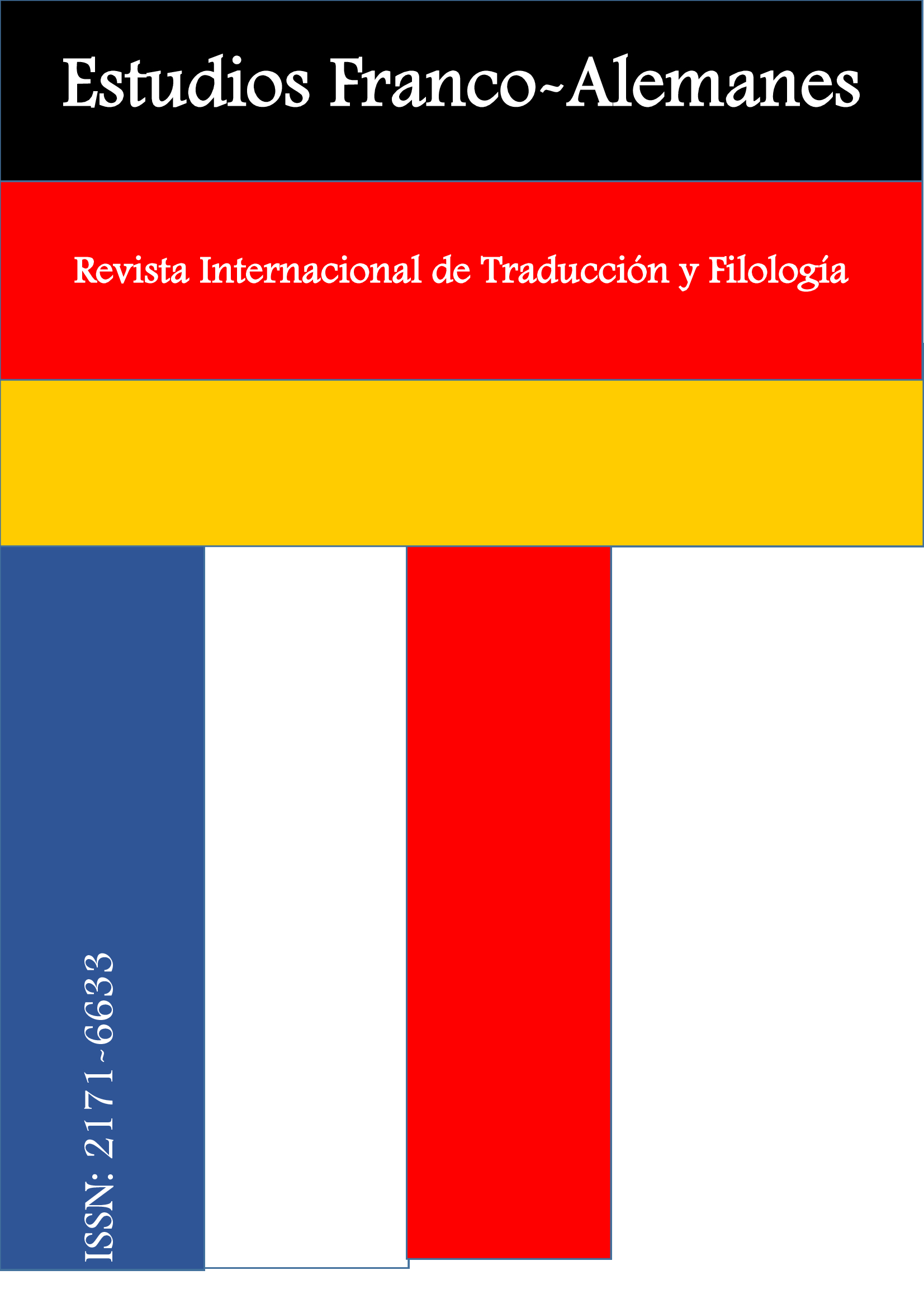La importancia de la terminología en el oleoturismo: análisis contrastivo aplicado a la traducción (español-alemán)
The importance of terminology in oil tourism: comparative analysis applied to translation (Spanish-German)
DOI:
https://doi.org/10.21071/estfa.v11i.15883Schlagworte:
aceite de oliva, oleoturismo, técnicas de traducción, terminología oleícola, traducción., olive oil, olive-oil tourism, translation techniques, olive terminology, translation.Abstract
El oleoturismo es una novedosa práctica turística que ha emergido recientemente en España, considerado el principal productor de aceite de oliva con certificación de calidad a nivel mundial. Mientras, Andalucía se sitúa a la cabeza en explotaciones y producción oleícola, otorgando así al mundo del olivo y del aceite de oliva andaluz un carácter globalizado. En esta región, el aceite de oliva se contempla como uno de los principales motores económicos y un signo cultural y gastronómico. Por ello, la divulgación de esta nueva práctica turística requiere de expertos en terminología y traducción que garanticen la correcta transferencia de un conocimiento especializado con un fuerte arraigo cultural. El presente artículo estudia el léxico relacionado con la recolección, la producción y la comercialización del aceite de oliva, así como de otras industrias y productos emergentes que tienen una relación directa con el oro líquido. Este artículo propone un estudio de esta terminología, empleada para mercantilizar la práctica del oleoturismo, desde una perspectiva traductológica, con el objeto fundamental de analizarlos en el traslado del español al alemán y llevar a cabo una reflexión sobre las técnicas de traducción empleadas.
Olive-oil tourism is a new tourist practice that has recently emerged in Spain, considered the main producer of olive oil with quality certification worldwide. Meanwhile, Andalusia is at the forefront in olive oil exploitation and production, thus conferring the world of olive groves and olive oil a global character. In this region, olive oil is seen as one of the main economic engines and a cultural and gastronomic sign. For this reason, the dissemination of this new tourist practice requires experts in terminology and translation to guarantee the correct transfer of specialized knowledge with strong cultural roots. This article studies the lexicon related to the harvest, production and commercialization of olive oil, as well as other emerging industries and products that have a direct relationship with the liquid gold. This article proposes a study of this terminology, used to commercialize the practice of olive-oil tourism, from a translation perspective, with the fundamental objective of analyzing them in the transfer from Spanish to German and to carry out a reflection on the translation techniques used.



